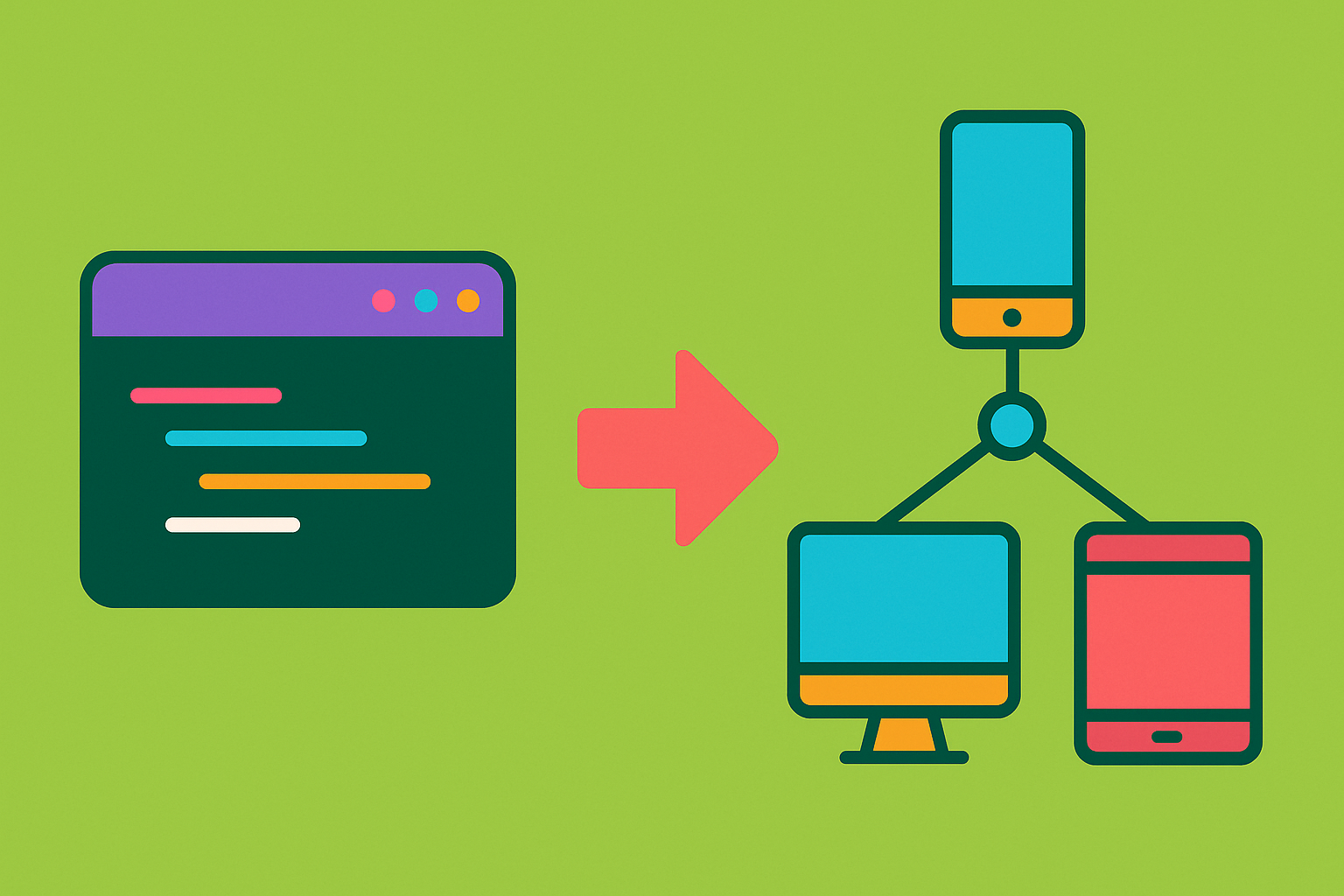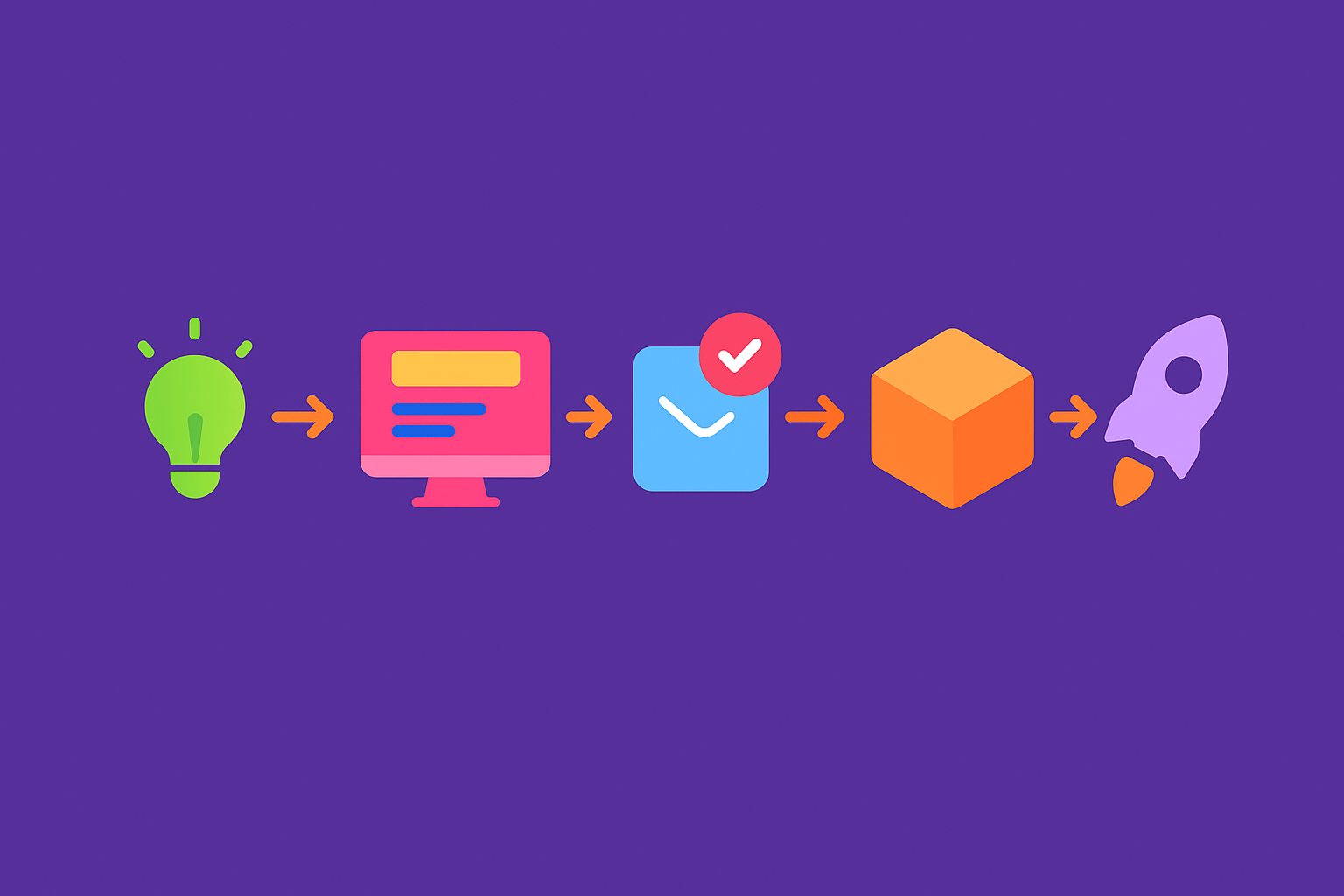So you've got a killer app idea and you're ready to build it. But then someone starts throwing around words like "native" and "cross-platform" and suddenly your head is spinning faster than a washing machine.
Don't worry! We're going to break this down so it's crystal clear.
What's a Native App Anyway?
Think of a native app like a custom-tailored suit. It's built specifically for one type of phone - either iPhone or Android.
When you build native, you're creating two separate apps:
- One for iPhones (using a language called Swift)
- One for Android phones (using a language called Kotlin or Java)
It's like having two different keys for two different doors.
What About Cross-Platform Apps?
Cross-platform apps are more like a universal remote that works on any TV. You build one app that can run on both iPhones AND Android phones.
Popular cross-platform tools include:
- React Native
- Flutter
- Xamarin
Think of it as writing one letter that can be read in both English and Spanish.
The Native Route: Pros and Cons
The Good Stuff:
- Lightning fast performance - Like a sports car built for one specific racetrack
- Access to everything - You can use every bell and whistle the phone offers
- Feels natural - Users feel right at home because it follows their phone's design rules
- Rock solid - Fewer crashes and weird bugs
The Not-So-Good:
- Double the work - You're basically building two apps instead of one
- Double the cost - More time = more money
- Need different developers - iPhone developers and Android developers speak different languages
- Updates take longer - When you want to add a feature, you have to do it twice
The Cross-Platform Path: Pros and Cons
The Good Stuff:
- One app, two phones - Build once, run everywhere
- Faster to market - Get your MVP out there quicker
- Cheaper upfront - Less development time means lower costs
- Easier updates - Change something once, and both versions get updated
The Not-So-Good:
- Might feel "off" - Sometimes doesn't quite match what users expect on their specific phone
- Performance hiccups - Can be slower, especially for graphics-heavy apps
- Limited access - Some phone features might be off-limits
- Debugging headaches - When something breaks, it can be trickier to fix
So Which One Should You Pick?
Here's the real talk: it depends on what you're building and what matters most to you.
Go Native If:
- You're building a game or app that needs serious speed
- You want to use specific phone features (like the camera in fancy ways)
- You have a bigger budget and timeline
- User experience is absolutely critical to your success
Go Cross-Platform If:
- You want to test your idea quickly and cheaply
- Your app is fairly straightforward (think social media or business tools)
- You're bootstrapping and every dollar counts
- Speed to market is more important than perfect performance
The Money Talk
Let's get real about costs. Building native apps typically costs 1.5 to 2 times more than cross-platform because you're essentially building two apps.
If you're looking at $50,000 for a cross-platform app, you might be looking at $75,000-$100,000 for native versions.
But remember - sometimes spending more upfront saves you headaches later.
What Most Successful Startups Do
Many successful companies start with cross-platform to test their idea quickly and cheaply. Then, once they prove people want their product, they rebuild with native apps for better performance.
Instagram started as a simple cross-platform app. Facebook bought them for $1 billion and later rebuilt everything native.
Making Your Decision
Ask yourself these questions:
- How complex is your app? Simple = cross-platform might work great
- What's your budget? Tight budget = cross-platform makes sense
- How fast do you need to launch? Quick launch = cross-platform wins
- Will performance make or break you? Performance critical = go native
The Bottom Line
There's no "wrong" choice here - just different paths to the same destination. The best app is the one that actually gets built and used by real people.
Whether you choose native or cross-platform, what matters most is having a solid plan, clear requirements, and a team that knows what they're doing.
Remember: you can always start with one approach and switch later as your business grows. The most important thing is getting started with something that fits your current situation.
Ready to turn your app idea into reality? If you need some guidance figuring out the best mobile development approach for your startup, check out our 1-hour strategy session. Or get in touch with us for all your software development needs!











